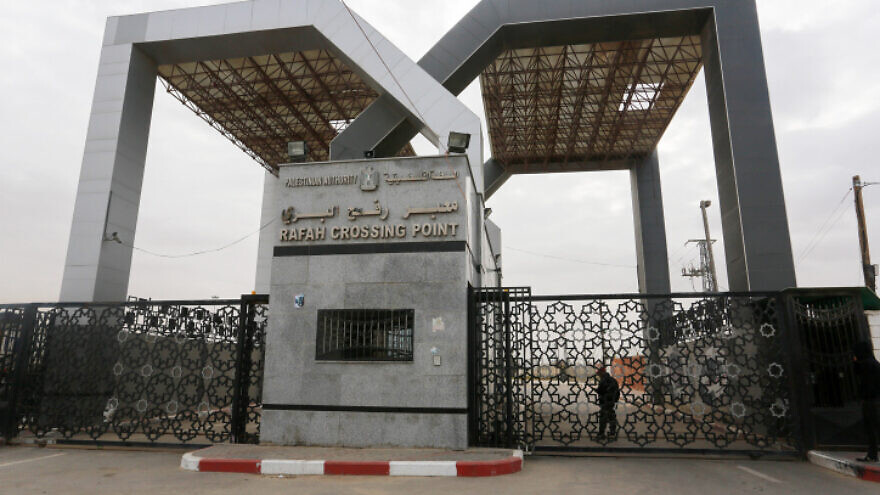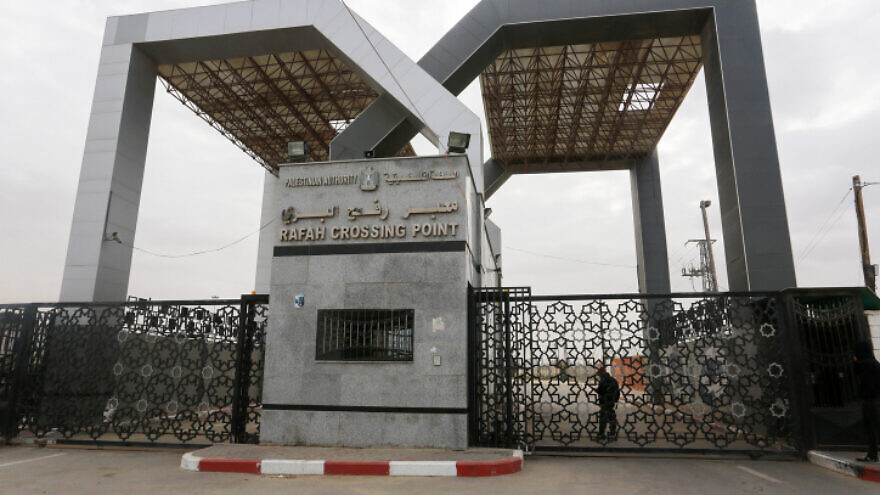
Israel’s War Effort Faces Continuous Pressure from Biden Administration
In the June segment of “Eyes on Israel,” host Rabbi Pesach Wolicki interviewed prominent Israeli journalist Caroline Glick about the current state of Israel’s war against Hamas and the pressures facing the Israeli government.
Glick painted a stark picture of the Biden administration’s efforts to push Israel towards a ceasefire before achieving its military objectives in Gaza. She argued that the U.S. is attempting to “force Israel into capitulating” to demands for an immediate ceasefire, likely to secure a foreign policy win ahead of the November elections.
Glick pointed to recent developments, including U.S. Secretary of State Antony Blinken’s visit to Israel and a proposed UN Security Council resolution, as evidence of mounting pressure on Israel to halt its military campaign. Glick suggested these moves are part of a coordinated effort to “oust from power,” viewing the Israeli Prime Minister as the main obstacle to achieving a ceasefire.
Glick also discussed Benny Gantz’s recent resignation from Israel’s war cabinet, framing it as part of the broader American strategy. She characterized Gantz as having acted as an “American mouthpiece” within the cabinet, often advocating for delays in military operations in line with U.S. demands. His departure, Glick argued, is aimed at destabilizing the government and potentially forcing new elections before the U.S. presidential vote in November.
However, Glick expressed skepticism about the success of these efforts, noting strong public support in Israel for continuing the war until a decisive victory is achieved. She argued that attempts to pressure Netanyahu often backfire, strengthening his position as Israelis rally behind him as a “safest port in the storm.”
The discussion then turned to Egypt’s role in the conflict. Glick outlined how Egypt’s stance towards Hamas has shifted in recent years, particularly since the Biden administration took office. She explained that while Egypt under President Abdel Fattah el-Sisi initially opposed the Muslim Brotherhood and its offshoots like Hamas, there has been a realignment in response to changing U.S. policies.
Glick suggested that Egypt began to soften its stance on Qatar – a key supporter of the Muslim Brotherhood – and Hamas around 2020-2021. This shift, she argued, led to increased cooperation between Egypt and Hamas, including the facilitation of arms smuggling into Gaza. The extent of this cooperation only became clear after Israel’s incursion into Rafah revealed extensive tunnel networks along the Egypt-Gaza border.
According to Glick, this change in Egypt’s position presents new strategic challenges for Israel. She pointed out that Israel had previously allowed Egypt to remilitarize the Sinai Peninsula to combat ISIS, resulting in a powerful Egyptian military presence on Israel’s southern border. With Egypt now appearing to side more with Hamas, this could potentially become a significant threat.

(source: JNS)
Looking ahead, Glick emphasized that the future of Israel’s relationships in the region, including with Egypt, hinges entirely on achieving victory in the current conflict. She argued that a clear win against Hamas would project strength and unity of purpose, potentially bringing neighboring countries in line with Israel’s position. Conversely, failure to achieve victory could lead to a “nightmare scenario” regarding regional dynamics.
Throughout the segment, both Wolicki and Glick expressed concern about the impact of international pressure on Israel’s military operations and the potential consequences of a premature ceasefire. The necessity of allowing Israel to complete its mission of dismantling Hamas’s military capabilities, despite growing calls for de-escalation, is of utmost importance.
The analysis of the complex geopolitical forces at play is sobering, to say the least. Israel faces challenges on the battlefield and in the diplomatic arena. As the war approaches its tenth month, the pressure on Israel to wind down operations continues to mount, setting the stage for crucial decisions in the coming weeks that could shape the future of the region.
The post Israel’s War Effort Faces Continuous Pressure from Biden Administration appeared first on Israel365 News.
Israel in the News